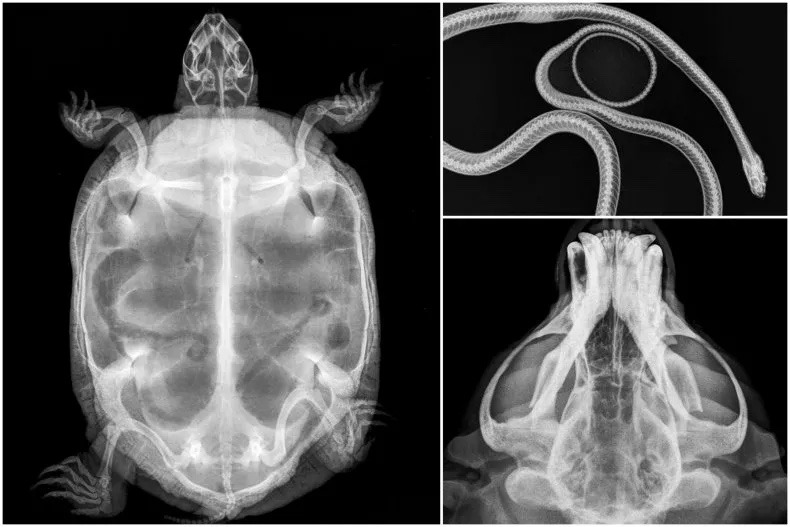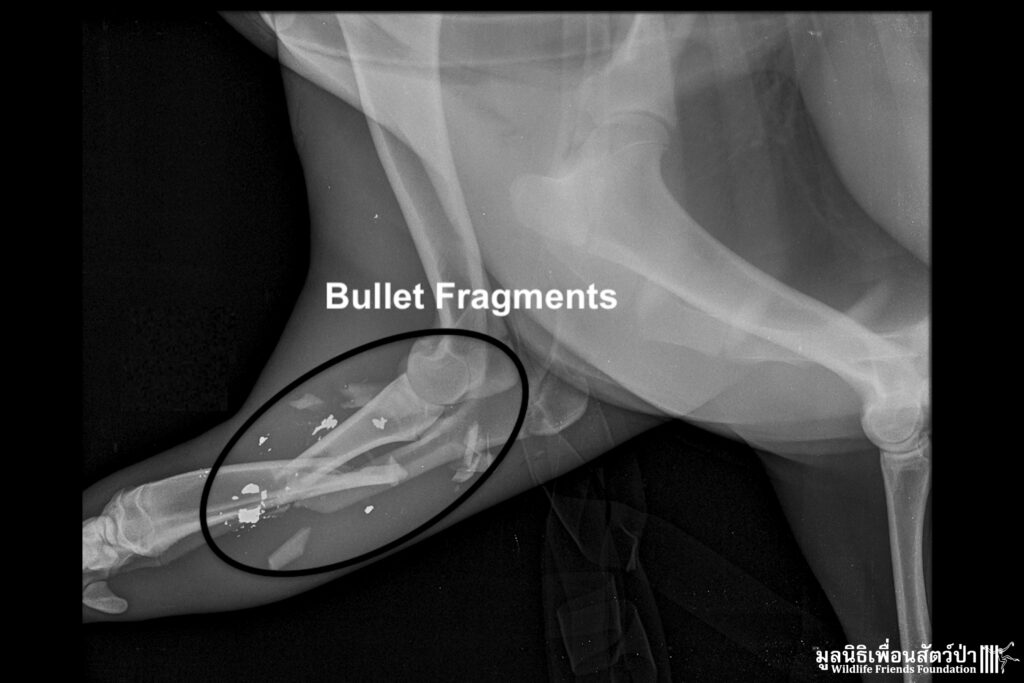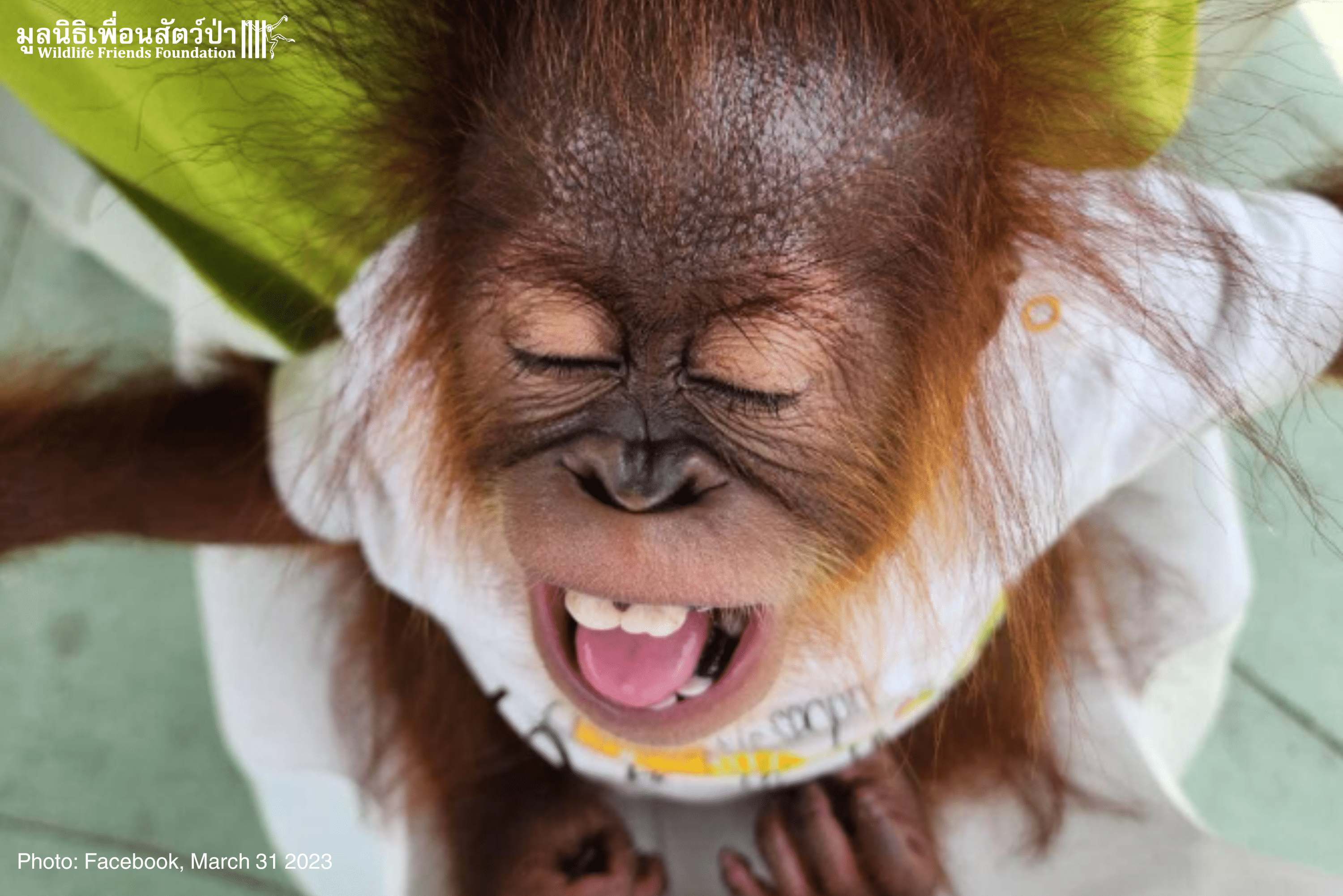Incredible X-Ray Images of WFFT’s Animal Patients Show Unique Glimpse into Thai Wildlife
WFFT has released a series of photos from our X-ray archive that showcases Thailand’s diverse wildlife and charts a history of our near-two decades of conservation work as the country’s biggest wildlife rescue centre.

From Indochinese tigers to white-handed gibbons, Thailand is home to a rich array of wildlife that includes nearly three hundred species of mammals, and many more birds, reptiles, and marine animals.
Now, the vet team at Wildlife Friends Foundation Thailand (WFFT) has searched our medical archives to release a series of stunning X-ray images that show a unique look at some of this wildlife, and highlight some of the stories from our clinic’s nearly two decades of life-saving work in protecting animals.
The striking medical images include the likes of a baby macaque, a sun bear, and a golden tree snake, and were all taken at the Wildlife Hospital on-site at WFFT.

Our Wildlife Hospital became the first wildlife hospital run by an NGO in Thailand when it opened back in 2005. Since then, it has treated thousands of wild animals every year, with many of them successfully rehabilitated and safely returned to the wild.
Patients at our clinic often include endangered Thai wildlife, including pangolins and gibbons, whose wild population numbers are rapidly decreasing and therefore make the hospital’s rehabilitation-and-release programmes all the more important.
The clinic’s X-ray machine has proved a vital part of its medical work, helping to diagnose and treat injuries and illnesses in an array of rescued wildlife – no matter how scaley or fluffy.
X-rays at WFFT can also reveal stories of how human conflict impacts Thai wildlife. Lodged bullets, broken bones, and missing limbs can often be found in the clinic’s X-rays where animals including deer, monkeys, and bears have been shot, injured or maimed by weapons like guns and traps.

The X-ray of Sandee the sambar deer shows several bullet fragments, which had penetrated the deer’s leg and shattered the bone. Sandee was brought to WFFT when she managed to escape poachers after being shot several times.

As well as wildlife in need, we also care for animals rescued from captivity, like Canoe the chimpanzee, who can be seen in the X-ray series. Canoe was originally caught in the wild in central Africa back in the 1980s, before spending over three decades confined alone in a small cage at a school in Thailand. After years of public and private campaigning, we were finally able to rescue Canoe and offer him a forever home at our sanctuary, where he now lives in a forested island home.

Another animal saved from captivity, Mukda was rescued from Phuket Zoo along with 10 other tigers in 2022. The X-ray, which shows Mukda with an ET tube in her mouth, helped our vets to diagnose the tiger’s breathing problem, which first displayed itself through a raspiness in Mukda’s growl.
Want to see our life-saving work in action? Come visit WFFT for a day tour or even stay the night in one of our luxury eco-lodges. Based in Phetchaburi, around a 2.5-hour drive from Bangkok, we are one of South East Asia’s largest animal sanctuaries and currently care for over 700 animals. As well as offering sanctuary to those animals that cannot be returned to the wild, our 700-acre site is home to the onsite Wildlife Hospital, a dedicated Elephant Hospital, and a Tiger Rescue Centre.
WFFT’s life-saving work to rescue, rehabilitate, and release Thai wildlife in need of help is only possible thanks to our kind supporters. If you can, please donate here to help us continue to protect animals.
Help wildlife in need
Your country is <b>United States</b> so currency auto changed to <b>US Dollars</b>

บริจาคได้ทันทีเพียงสแกนคิวอาร์โค้ดด้านล่าง

Our Mission
WFFT is one of South East Asia’s largest animal sanctuaries and cares for over 700 animals. The sanctuary rescues and rehabilitates captive wild animals, and offers a forever home to those who cannot safely be returned to the wild.
The charity also focuses on raising awareness of wildlife conservation and animal exploitation by educating tourists and local communities on the urgent issues facing animals today.




